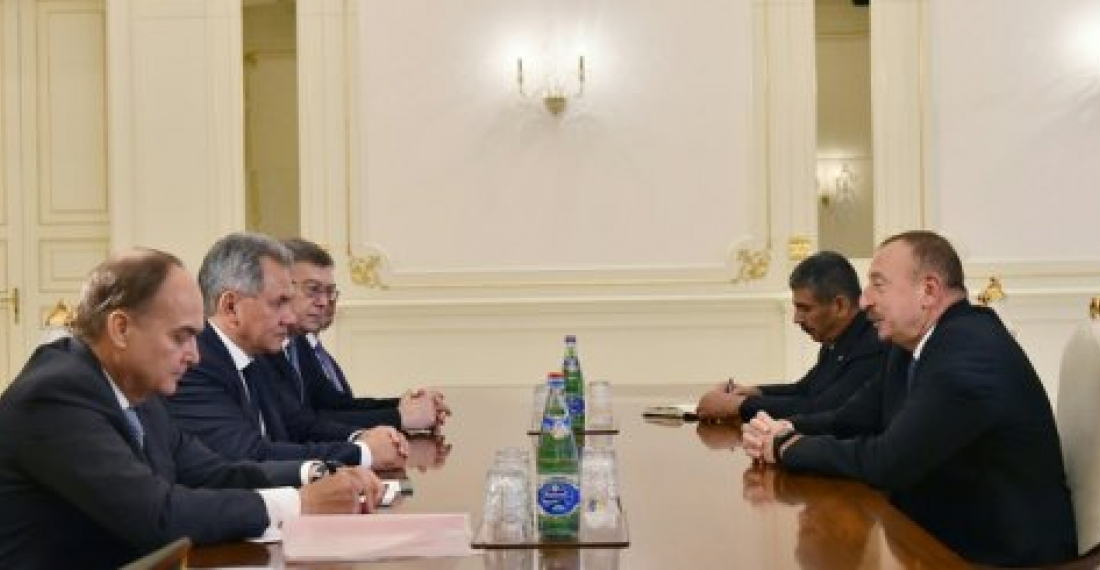Azerbaijan President Ilham Aliev on Sunday evening (14 August) met with the Russian Defence Minister Sergei Shoigu, who was on a brief visit to Baku at the head of a delegation from the Russian Defence establishment. The visit comes only days after President Putin visit to Baku, where he had several hours of discussions with the Azerbaijani leader. On Thursday Putin met the National Security Council where he gave instructions about follow-up to his visit to Azerbaijan and other meetings he had with leaders of Iran, Turkey, Azerbaijan and Armenia.
Commonspace.eu political editor said that Shoigu's visit to Baku within days of Putin's own visit is evidence of the determination of the Russian side to show Baku that it is serious about pursuing its bilateral co-operation agenda. However the visit could also indicate that as it faces stiff resistance from Armenia for its plans for a Karabaklh conflict settlement Moscow may be offering Azerbaijan sweetners in the form of military supplies and co-operation instead.
source: commonspace.eu
photo: President Aliev of Azerbaijan recieved on Sunday (14 August 2016) a delegation from the Russian defence establishment, led by Defence Minister General Sergei Shoigu.






